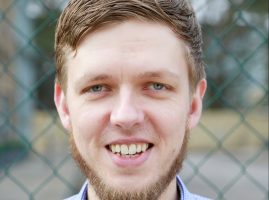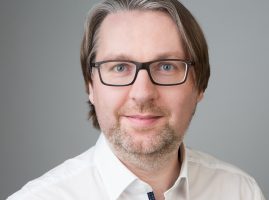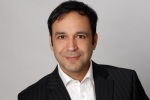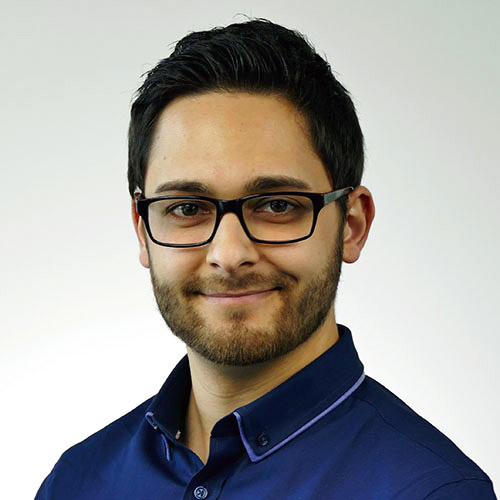We are preparing the next edition of the GeoIT Talks at the site of our member BeaconInside. But have a nice summer break now and join us in September again.
BTW: If you like to contribute a talk, contact president@geoit.org.
We are preparing the next edition of the GeoIT Talks at the site of our member BeaconInside. But have a nice summer break now and join us in September again.
BTW: If you like to contribute a talk, contact president@geoit.org.
Have a look at HERE’s blog post about the 17th edition of the GeoIT Geomonday Talks here: https://developer.here.com/blog/geomonday. It gives a good overview and summerizes well.
Save the date for the next upcoming edition on Wednesday, October 24th 2018 in the Beuth Hall.
Save-the-evening for the next edition of the GeoIT Talks. The registration is open: http://talks2018-2.geoit.org/.
 Synfioo, the ETA expert, taps into an extensive list of external and internal data sources to assess if certain events can cause delays for each individual transport. Synfioo can also connect to all carriers and subcarriers and receive departure, GPS and drive time information automatically. Synfioo then predicts the ETA (Estimated time of arrival) for all transports, alerts all relevant parties if there are disruptions to the plan and provides routing alternatives that can be acted upon immediately. Since Synfioo is a pure backend service, the information provided is integrated into existing IT-systems, e.g., the transport manager sees the information in the environment he is familiar with. In essence, Synfioo facilitates transportation planning by providing relevant information to better manage the delivery time window. That allows transportation planners to concentrate on their core tasks and to increase their productivity.
Synfioo, the ETA expert, taps into an extensive list of external and internal data sources to assess if certain events can cause delays for each individual transport. Synfioo can also connect to all carriers and subcarriers and receive departure, GPS and drive time information automatically. Synfioo then predicts the ETA (Estimated time of arrival) for all transports, alerts all relevant parties if there are disruptions to the plan and provides routing alternatives that can be acted upon immediately. Since Synfioo is a pure backend service, the information provided is integrated into existing IT-systems, e.g., the transport manager sees the information in the environment he is familiar with. In essence, Synfioo facilitates transportation planning by providing relevant information to better manage the delivery time window. That allows transportation planners to concentrate on their core tasks and to increase their productivity.
 Marian Pufahl is Co-Founder and Managing Director of Potsdam-based Synfioo. He has an IT and Business background, worked for small and large consultancy companies, and is mainly responsible for Sales and Marketing at Synfioo.
Marian Pufahl is Co-Founder and Managing Director of Potsdam-based Synfioo. He has an IT and Business background, worked for small and large consultancy companies, and is mainly responsible for Sales and Marketing at Synfioo.
 Starting with the use-case of anti-doping and athletes’ whereabouts management in the current system ADAMS, the talk explores some ideas regarding privacy-preserving technologies and self-determination using geofences. Furthermore the talk will give an overview of geolocation representations and geocodes systems, such as Geohashes, Open Location Code, S2, MapCode, and the Universal Transverse Mercator coordinate system. Besides the anti-doping use-cases, other scenarios will be explored and should lay the ground for a fruitful discussion on geocoding, whereabouts, and privacy.
Starting with the use-case of anti-doping and athletes’ whereabouts management in the current system ADAMS, the talk explores some ideas regarding privacy-preserving technologies and self-determination using geofences. Furthermore the talk will give an overview of geolocation representations and geocodes systems, such as Geohashes, Open Location Code, S2, MapCode, and the Universal Transverse Mercator coordinate system. Besides the anti-doping use-cases, other scenarios will be explored and should lay the ground for a fruitful discussion on geocoding, whereabouts, and privacy.

2002, Sebastian Zickau submitted his diploma thesis during a project at the IT-Service-Center of the Technische Universität Berlin (tubIT) where he worked as a student research assistant. The focus of the thesis was on e-mail encryption using smartcards. After he received his diploma, he continued to work at the tubIT Service Center as a research assistant. During this time, he contributed to several security, policy, and access control projects, such as TUBIT. In 2008, Mr. Zickau started to work at the University of Reading in England for two years. There he joined the EU-funded Hydra Middleware project (now LinkSmart middleware) in a research group at the School of Systems Engineering. My main focus was on security and policy aspects and context functionalities during the realization of the Hydra software along with work on project demonstrators and general research. In March 2012, Sebastian Zickau joined the Telekom Innovation Laboratories in Berlin, as a research scientist at Prof. Dr. Axel Küpper’s chair Service-centric Networking (SNET). He contributed to the BMWi- and BMBF-funded projects: TRESOR (Cloud Computing in the health sector), Curcuma (location-based access control) and the running PARADISE. His research in PARADISE focuses on ubiquitous computing, location-based access control, and privacy aspects within an anti-doping use case. He is currently writing his doctoral thesis about these topics.
![]() The distribution of concrete is one of the most complex logistics management tasks. Ready-mix concrete has a very short shelf life of approx. 90 minutes and small and large order quantities must be delivered quickly, accurately and as cost-effectively as possible to geographically widely distributed and frequently-changing unloading points. Through the use of geo information, the various operational processes of the building material logistics can be optimized.
The distribution of concrete is one of the most complex logistics management tasks. Ready-mix concrete has a very short shelf life of approx. 90 minutes and small and large order quantities must be delivered quickly, accurately and as cost-effectively as possible to geographically widely distributed and frequently-changing unloading points. Through the use of geo information, the various operational processes of the building material logistics can be optimized.
Babak Toloue Tehrani is responsible for transport and logistics projects and products at Geocom Deutschland GmbH. His main focus is on integrating geo-functionality into applications and processes for the logistics i ndustry. The customization of street data for routing and optimization tasks within ArcGIS based on specific use cases has been the focal point of his work in the past decade.
ndustry. The customization of street data for routing and optimization tasks within ArcGIS based on specific use cases has been the focal point of his work in the past decade.
When it comes to logistics, most of the people think of parcels and the shipment of them. But the topic is much more comprehensive and touches a lot of more branches than parcel delivery. In general, logistics is about processes and the handling of the low of things between two spatially distinct points. It compasses everything which can be carried like food, persons, electricity or even data. However, logistics has to deliver solutions to critical challenges which dramatically influence our lifes today and in the future. For example, how to transport large amounts of electricity from a production site to the places where it is required in a suitable time or how to handle the transport of people and goods in more and more crowded cities with overwhelmed infrastructure whilst the demand on faster and more dynamic transportation services is increasing?
These are only some of the questions we have to deal with and on which logistical solutions have a significant impact. However, our mission at the last GeoMonday this year is to give you a broader insight into the challenges, solutions and trends in the field of logistics. We hope to be able to present you some innovative products and interesting projects albeit on a smaller scale. Inline with the topic we invite you to a entirely new location. A location where logistics is a huge part of the daily business. We are happy to announce that the IVU Traffic Technologies AG is going to host the GeoMonday this time. Therefore, be part of this year’s last edition of the GeoMonday and join us on 11th December in Berlin in the premises of IVU.
Date: 11 December 2017
Time: 19 – 22 Uhr
Location: IVU Traffic Technologies AG, Bundesallee 88, 12161 Berlin
![]() “Will speech soon do away with typing” – This question has recently been raised by a large German Newspaper. Lately, more and more speech assistants like Google Assistant, Amazone’s Alexa, Microsoft Cortana or Apple’s Siri are reaching the market and all owing users to control many parts of their life by voice input. This Technology is called natural language and understanding (NLU) and may also be used to control web mapping technology. Imagine that you could say “show me all schools in Berlin” instead of using a selection tool to select those features.
“Will speech soon do away with typing” – This question has recently been raised by a large German Newspaper. Lately, more and more speech assistants like Google Assistant, Amazone’s Alexa, Microsoft Cortana or Apple’s Siri are reaching the market and all owing users to control many parts of their life by voice input. This Technology is called natural language and understanding (NLU) and may also be used to control web mapping technology. Imagine that you could say “show me all schools in Berlin” instead of using a selection tool to select those features.
Matthias Stein is a software engineer at con terra GmbH. Previously he studies  Geoinformatics at the Bochum University of Applied Science.
Geoinformatics at the Bochum University of Applied Science.
Martin Wilden studies Geoinformatics at the University of Münster and worked as student assistant for 52° North Initiative for Geospatial Open Source Software GmbH.  After studying he joined con terra GmbH as software developer.
After studying he joined con terra GmbH as software developer.
![]() With the increasing amount of aerial imagery – regardless if captured from aircrafts or UAV – available, automatic analysis of this data becomes more and more important to make use of this data. TerraLoupe uses deep neural networks to automatically detect objects of interest for various industries such as automotive, insurance or energy to help their clients getting deeper insights for their business critical applications. This includes high-definition maps for autonomous driving, risk assessment for insurances and solar potential analysis.
With the increasing amount of aerial imagery – regardless if captured from aircrafts or UAV – available, automatic analysis of this data becomes more and more important to make use of this data. TerraLoupe uses deep neural networks to automatically detect objects of interest for various industries such as automotive, insurance or energy to help their clients getting deeper insights for their business critical applications. This includes high-definition maps for autonomous driving, risk assessment for insurances and solar potential analysis.

Sebastian Gerke studied Computer Science at the University of Karlsruhe, after which he worked as a research associate at the Fraunhofer HHI and pursued research in computer vision and machine learning. In 2015 he co-founded TerraLoupe, a startup that brings deep learning expertise to the field of aerial imagery.
Society for Geoinformatics, GeoIT and Navigation e.V.
Gerhart-Hauptmann-Straße 2
59510 Lippetal-Lippborg
Germany
info@geoit.org
Represented by:
President Prof. Dr. Michel Deriaz
Vice President Prof. Dr. Thomas Blaschke
Vice President Lukasz Rojek
Treasurer Georg Held
Association Registery / Vereinsregister:
Amtsgerichts Berlin-Charlottenburg VR35911 B